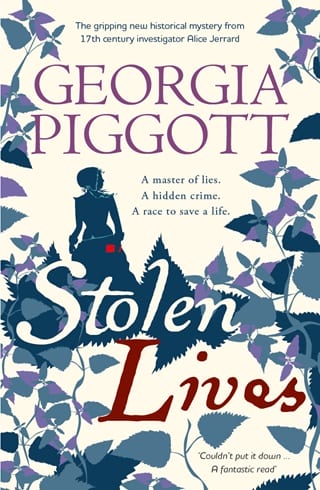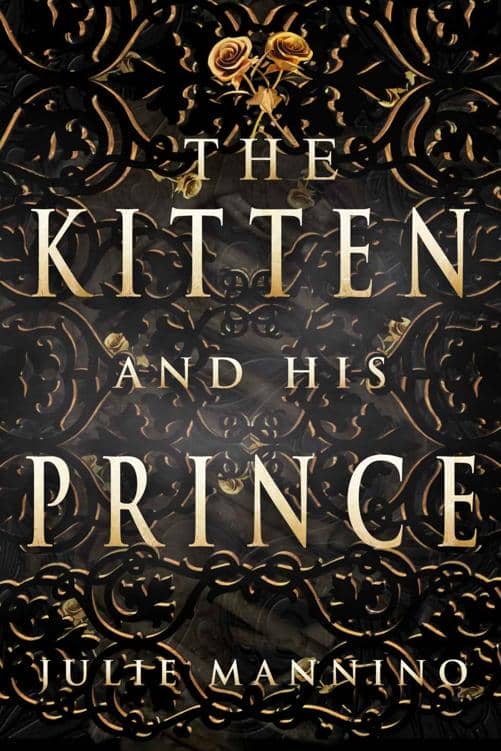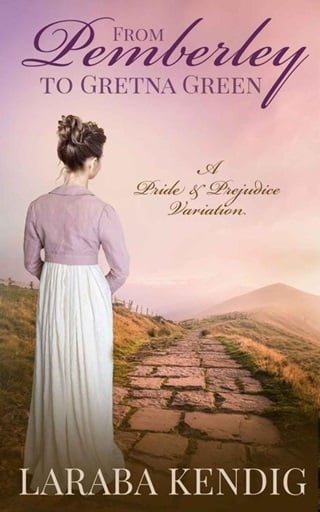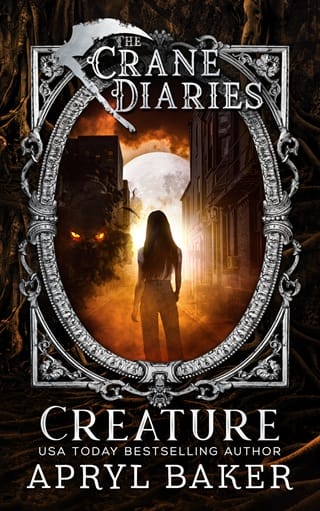3
W hen last she travelled this route it was in the opposite direction; her first journey from Dorset to High Stoke, bringing with her all that a new wife would bring to her husband’s home. This time there are only clothes to take, and few enough of them, the weather being warm. All her heavy wear can be left behind, and Sam can live mostly in shirts and breeches and just one pair of shoes, he kicks them off at the first opportunity anyway. Alice herself has been glad to discard cap and partlet while at home, with the excuse that it makes for an unnecessary excess of washing. But she recognises that Ursula the baron’s daughter will expect a closer adherence to convention in her guests than Alice the farmer’s daughter is used to. So, caps, day wear, visiting wear have all been packed in her box.
Beside her on the cushioned seat, Sam fidgets. ‘How long will it take to get there?’
‘It’s the same journey as when we came here,’ Alice tells him, ‘except it’s the other way round.’
‘Can I sit up in front with the horses?’
‘Only if Wat invites you. This is not our coach, remember. Wat is Aunt Cazanove’s man.’
They make good time at the start, but day after day of jolting makes tiring work of it. Each day drains finally to dusk and they stop at indifferent inns by the way. Sam, Alice realises, has clearly dropped heavy hints to Wat that he is interested in horses, and has wheedled a place for himself alongside Ursula’s man. But rain starts when they get to Salisbury. Although the chalky roads across the plain do not become mud baths, they are dangerously slick and Wat is frequently obliged to slow to a walking pace.
For this stretch, Alice has brought Sam back inside. To while away the hours of slow bumping, and whenever they are not passing through a town, Alice raises the folding coach-leaves so that they can look at the countryside. They point out items of interest to each other, but it is not enough to keep either absorbed for long.
‘Are we nearly there?’ Sam asks constantly, and Alice says, ‘Not yet,’ or ‘Not far now,’ or ‘Nearly.’ They are by no means the only traffic, much of which is in a hurry to pass them. Once, a coach and four thunders past, thrilling Sam, while Alice looks in horror at the coachman forcing his mired horses along with voice and whip.
In the end, it takes over a week. From Shaftesbury through Sturminster, they reach Bishops Caundle, as weary and hungry as the horses, and on the breezy top of a rise they stop at the inn for the night.
‘Service is better here,’ Wat urges. ‘So’s the ale. I expect you’re ready for a drink?’ Before the monasteries were dissolved in the last century, the innkeeper tells them, monks used to brew beer here. Perhaps some of the monks’ experience has filtered down, Alice thinks, for even her small-ale is well flavoured.
‘What’s smoared rabbit?’ Sam asks her in their chamber, after the innkeeper has told them what is for supper.
‘Cooked in onions in a pottle,’ she tells him, leaning to feel the sheets. ‘Its own juices become the gravy, so you’ll be able to sop your bread in it.’ This out-of-the-way inn is a blessed relief from crowded inns on the busy principal road. For the first time in days, they can sleep well, undisturbed by heedless revellers and peevish late arrivals.
Once they have supped and she has seen Sam to sleep, she takes the opportunity to slip out of the inn to roam the lane under the darkening sky. After a hundred paces or so she looks back. The building is shadowed against the mounting night clouds, its coping stones jagged with chattering starlings, and one wall catches the last of the yellow westerly light. The murmur of a couple of drinkers at their bench by the door drifts across, and the whiff of pipe smoke reaches her even at this distance. Beside them the door opens, momentarily throwing a rush-lit glow as a figure comes out.
A fallen tree trunk, devoid of bark and bleached grey from the wear of seasons, lies a few steps from the lane, affording her a comfortable seat in the twilight. Fluttering blackly against the deep indigo dusk, bats flick past, there and gone. She jumps at the crack of a twig nearby.
‘I saw you go out. I wondered if you are well, mistress?’
‘Wat! That was kind. I am well, I thank you. It’s good to have an evening without ostlers, travellers and serving girls shouting under my window.’ She shifts along the tree trunk. ‘There’s room here if you’d like to sit a while?’ As he takes his seat next to her, ‘You’ve had some long days bringing us all this way,’ she says. ‘You must tell me if Sam is too importunate with his chatter. I can take him inside whenever you need.’
‘Master Sam is no bother. He keeps me on my toes with his questions and ideas. Truth to tell, I was wondering how you while away the time when he’s up with me, or when he’s abed and you have time on your hands.’
‘I have plenty to think about, believe me, Wat. Such as how Daniel is finding the job of husbanding Hill House Farm for me, as well as working at the forge; how my people are coping back at High Stoke…’
‘My mistress told me how you lost your husband so soon after your marriage, how difficult that must be for you.’
Something she has been hardening herself to is the sense of drowning within, inundated by thoughts of Henry and faced with kindly-meant suppression of any reference to him. And now suddenly here is Wat, not so much asking a question as offering a listening ear. It is no hard task to let the truth rise like bubbles to the surface. ‘He is in my thoughts always. I tell myself that will fade in due course.’
‘I do not wish to pry, mistress, but given time, these things do, I have found.’ This is not the commonplace sympathy for a new widow. His words bear the hallmark of a man who knows what it is to lose someone close.
‘At the moment, little things bring him constantly to mind,’ she tells him. ‘A phrase I hear, ideas we discussed, accord and discord, all the minute threads and knots you unwittingly tie and re-tie with each other as you build your little edifice of marriage.’ He is nodding as she speaks and she feels his understanding. ‘We had such plans…’ She stops, putting on a smile in the twilight, a bastion against threatening tears.
‘There was a good trust between you, it seems?’
‘At the end, yes. Together we had just unravelled an important knot. We were the stronger for it.’
‘I hope you take comfort from it,’ he says, ‘that your trust remains secure, unbroken.’
Taking comfort from what has gone forever has not hitherto occurred to her. Remembrance of the invisible value. ‘Perhaps you are right. It would be so much harder if I felt I had betrayed, or that he had, and it was too late to rectify.’ She takes a covert glance at the man beside her, who has always appeared so closed, so reticent, but who is trying to lighten her load. She is silent, thinking of his kindness, not only as it relates to herself. In the gathering dusk she is emboldened to respond, ‘Your own experience has not been without trouble, I hazard.’
‘My experience!’ A short laugh, barren of mirth. ‘That’s a much-patched thing, not worth your notice. I can say I have a better life now than before.’
‘I am glad. Your time as Master Cazanove’s body servant cannot have been easy. I have yet to meet anyone who regrets his passing.’
‘His passing is one event I shall never regret as long as I live,’ he declares, and she looks up sharply. The sun’s last light has made molten undersides of the hovering clouds, and the afterglow burns in his eyes.
‘He made your life a misery, I think.’ As Wat did for her, she offers the invitation to confide. His gaze falls and he bows his head as though deep in thought.
After a while he gets to his feet. ‘Shall I walk you back to the inn?’
 Fullepub
Fullepub 



